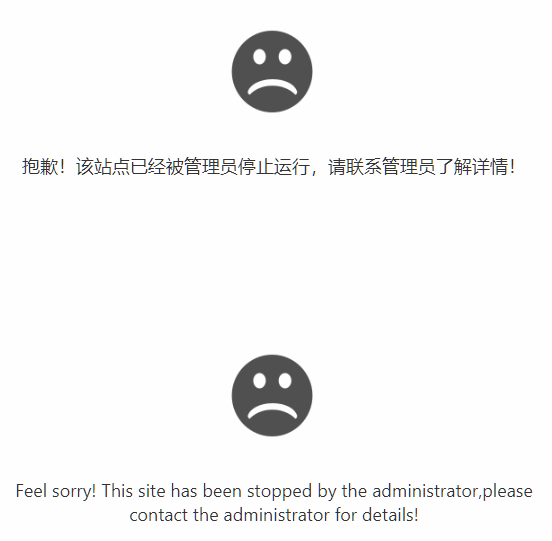-
chevron_right
Japan’s 2 Trillion Yen Manga & Anime Piracy War Gets New Hollywood Backing
news.movim.eu / TorrentFreak · Monday, 8 April - 06:48 · 6 minutes
 Anti-piracy organization
CODA
(Content Overseas Distribution Association) is a permanent fixture on the front lines of Japan’s war against online piracy.
Anti-piracy organization
CODA
(Content Overseas Distribution Association) is a permanent fixture on the front lines of Japan’s war against online piracy.
CODA represents the interests of around 30 corporate entities doing business in the publishing, media, movie, music, and wider entertainment industries. Members include publishers Kadokawa, Shueisha, Kodansha, and Shogakukan, through to videogame/publishing giants Square Enix and Bandai Namco. From the broadcasting sector, there’s NHK, Nippon, and Nikkatsu, to name just a few.
While these names represent just a sample of the individual companies represented by CODA, the anti-piracy group also has around ten ‘organizational’ members. These are trade groups in their own right and have members of their own.
They include the Japan Satellite Broadcasting Association, Motion Picture Producers Association of Japan, Japan Video Software Association, Japan Magazine Publishers Association, Association of Japanese Animations, plus several others involved in the videogame, software, and content protection legal sectors.
Popularity of Japanese Content Fuels Massive Levels of Piracy
The scale of the content protection challenge faced by CODA is difficult to overstate. The anti-piracy group is refreshingly open with its research and data, which as an observer makes it easier to connect with and appreciate the big numbers, rather than simply reciting them without relevant context.
Japan’s online piracy issues are a constant, much as they are in any other country, but more recent estimates reveal illicit consumption’s startling growth.
A major problem estimated to be worth less than 500 billion yen (US$3.3bn) back in 2019 took just three years to transform itself into a ~2 trillion yen ($13.2bn) piracy nightmare. Videogame piracy skyrocketed in the period leading to 2022, but it’s the products of the publishing and film industries that attract the lion’s share of all piracy, much of it taking place and directed from overseas.
CODA & MPA Officially Extend 10-Year Anti-Piracy Partnership
On March 20, 2014, CODA and the Motion Picture Association (MPA) signed an agreement to develop new strategies to tackle online copyright infringement worldwide, and to strengthen their joint copyright protection activities. The agreement, renewed another five times since then, has just reached its 10th anniversary and the event was marked with another renewal.
Last week at MPA headquarters in Washington, D.C., CODA and the Motion Picture Association signed an official memorandum of understanding (MOU) to extend the term of their agreement until 2026.
“On the day, MPA’s Karin Temple (Senior Executive Vice President and Global General Counsel) and CODA’s Representative Director Takeo Goto signed the agreement, and at the signing ceremony, each pledged further collaboration,” a CODA statement reads.

“CODA and MPA began a business partnership in 2005 to combat physical piracy in the Asian region, and have since built a strong partnership by signing a 10-year MOU starting in 2014. CODA and MPA’s joint enforcement efforts have achieved great results, including implementing many anti-piracy measures in the Asia-Pacific and beyond, resulting in tens of thousands of crackdowns.”
Joint Success, Massive Budget Disparities
CODA data shows that from January 2005 to March 2023, collaboration with the MPA generated thousands of enforcement cases. In China, 13,820 cases led to the arrest of 304 people, in Hong Kong 1,318 cases led to 1,275 arrests, and in Taiwan, 2,233 people were arrested as part of 2,215 enforcement operations.
From physical piracy operations to more recent actions targeting pirate IPTV in Taiwan, CODA deals with problems wherever it finds them.

A major issue faced by CODA relates to its budget for overseas anti-piracy enforcement. Funding for overseas anti-piracy efforts is allocated as a proportion of overseas sales and CODA’s members simply don’t do enough overseas business to compete with the MPA, CODA explains.
Annual dues for the six major studios for piracy-fighting actions carried out by the MPA total $50m. CODA says that Disney’s sales alone out-volume the combined sales of Toei, Toho, Shochiku, and Kadokawa, at a rate of 16 to 1.
Given the disparity, the opportunity to conduct joint enforcement work with the MPA is clearly a massive boost for CODA’s members. At a time when Japanese content is in demand like never before in overseas markets, it’s especially important. As the market stands right now, however, only a minority of overseas consumers actually pay for it.
Enforcement Challenges Broadly Mimic Those of the MPA
In a presentation slide, CODA highlights how a typical pirate can operate if the operator wishes to remain anonymous. The original slide ‘The dark side of identifying operators of pirated sites’ is entirely in Japanese so here we’ve made best efforts to provide a like-for-like translation.
Some nuance may have been lost, but the common theme is undoubtedly a lack of ‘know your customer’ regimes from domain registration, to server rental, through to use of a CDN such as Cloudflare.

Considered a major irritant, the Njalla domain service is called out alongside Cloudflare.
“Began operations in April 2017. Sells ‘complete anonymity’. Founded by Peter Sunde, co-founder of The Pirate Bay. Users buy the rights to use domains purchased by Njalla. Njalla is the owner of the domain, Njalla does not disclose [user identities],” CODA writes.
“[Cloudflare] operates a distributed server system (user servers are hard to find). When Cloudflare discloses information, the site operator is also notified to that effect. The operator immediately moves the server,” the anti-piracy group contiues, adding:
“If you have basic knowledge of the Internet and can read and write simple English, you can operate a completely anonymous pirate site!”
Takedown Compliance: The Winner is….
In common with many anti-piracy groups, CODA sends large numbers of DMCA-style takedown notices to platforms including YouTube, Facebook, Daily Motion, and sundry local equivalents.
The data shows that CODA achieves a very high rate of compliance, in many cases above 99%. (Original slide in Japanese, our translations appear inside square brackets [ ])

Whether that’s due to CODA’s high-level accuracy (our knowledge of CODA suggests that they take accuracy very seriously) or adherence to strict local law, or even a combination of both, isn’t immediately clear. However, the stand-out figures here are returned by MEGA; every piece of content CODA asked MEGA to remove, was removed, earning the company a 100% compliance rate.
For reference, CODA’s members and their lines of business are listed below.
(Note: some companies may span more than one category but here they are listed only once)
### Anime and Entertainment Production
1. Aniplex Inc.
2. Cygames, Inc.
3. KADOKAWA CORPORATION
4. King Record Co., Ltd.
5. SHUEISHA Inc.
6. SHOGAKUKAN Inc.
7. Shogakukan-Shueisha Productions Co., Ltd.
8. SQUARE ENIX CO., LTD.
9. STUDIO GHIBLI INC.
10. TOEI ANIMATION CO., LTD.
11. TMS ENTERTAINMENT CO., LTD.
### Publishing and Media
12. ADK Emotions Inc.
13. KODANSHA LTD.
14. Nikkatsu Corporation
15. Nippon Television Network Corporation
16. Japan Broadcasting Corporation (NHK)
17. Shochiku Co., Ltd.
18. TOKYO BROADCASTING SYSTEM TELEVISION, INC.
19. TV Asahi Corporation
20. TV TOKYO Corporation
21. YOMIURI TELECASTING CORPORATION
22. WOWOW Inc.
### Film Production and Distribution
23. Happinet Phantom Studios Corporation
24. TOEI COMPANY, LTD.
25. TOHO CO., LTD.
26. Bandai Namco Filmworks Inc.
### Music and Record Labels
27. Avex Inc.
28. King Record Co., Ltd.
29. PONY CANYON INC.
30. UNIVERSAL MUSIC LLC
### Broadcasting
31. Fuji Television Network, Inc.
### Miscellaneous
32. FWD Inc. (Various services)
33. YOSHIMOTO KOGYO HOLDINGS CO., LTD. (Entertainment management and production)
Organizational members of CODA listed by category
### Media and Entertainment Associations
1. Japan Satellite Broadcasting Association
2. Motion Picture Producers Association of Japan
3. Japan Video Software Association
4. Japan Magazine Publishers Association
5. The Association of Japanese Animations
### Gaming and Software
6. Computer Entertainment Supplier’s Association
7. Association of Copyright for Computer Software
8. Digital Content Association of Japan
### Intellectual Property and Legal
9. Japan Patent Attorneys Association
### Anti-Counterfeiting
10. Anti-Counterfeiting Association
From: TF , for the latest news on copyright battles, piracy and more.

 Manga comics are popular around the globe in a content category that has seen
Manga comics are popular around the globe in a content category that has seen










